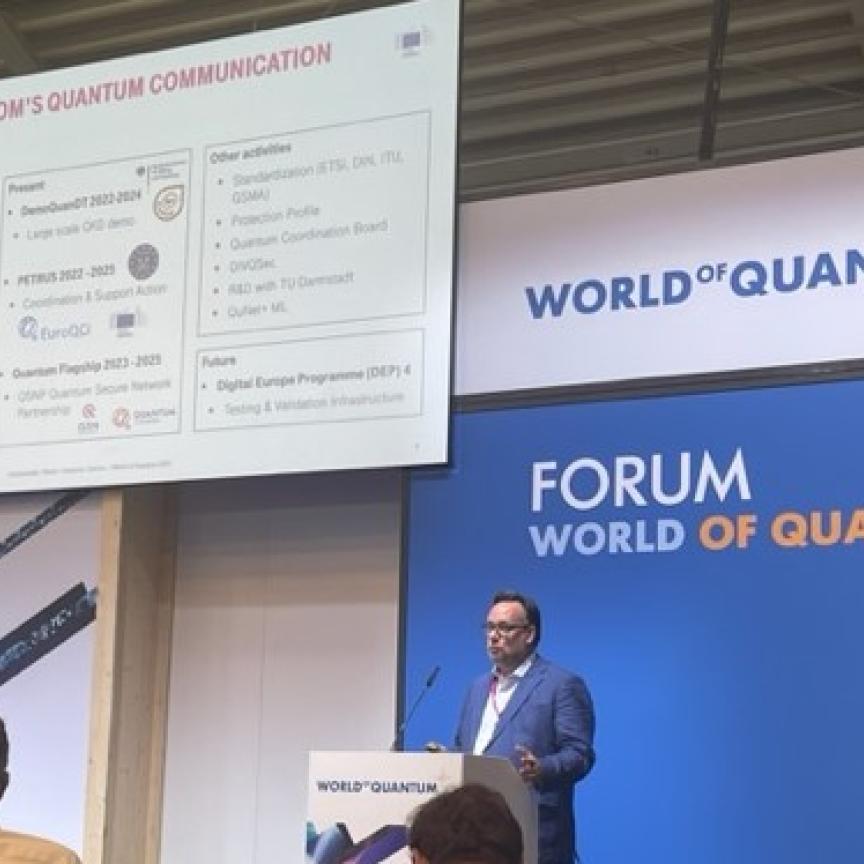Vodafone has agreed to acquire Liberty Global’s operations in Germany, the Czech Republic, Hungary and Romania for an enterprise value of €18.4 billion.
The four businesses represent approximately 28 per cent of the cable group’s consolidated 2017 operating cash flow, which does not include its 50 per cent share from the VodafoneZiggo joint venture in the Netherlands.
The move will help to accelerate Vodafone’s converged communications strategy through in-market consolidation in its largest market (Germany) – as well as its central and Eastern European markets – following the announcement late last year that it intended to invest about €2 billion to provide 13.7 million new gigabit broadband connections to German homes and businesses (see Vodafone to invest €2B in German gigabit connections). It also brings Vodafone’s European stock up to 54 million cable/fibre homes ‘on-net’ and a total next-generation network reach of 110 million homes and businesses, including wholesale arrangements.
As a consequence, there will likely be greater competition for Germany’s current incumbent, Deutsche Telekom, and CEO, Tim Hoettges expressed concern back in February that such a deal would be ‘unacceptable’ due to the creation of a monopoly in the cable TV market.
The transaction will be subject to regulatory approval from the European Commission, which is expected mid-2019. Upon completion, Liberty Global will continue provide cable television and broadband in Europe, with consolidated operations in the United Kingdom, Ireland, Belgium, Switzerland, Poland and Slovakia – which reach a combined 24 million homes. This is in addition to its 50 per cent share of VodafoneZiggo in the Netherlands, which has some 4 million customers subscribing to 10 million fixed line and 5 million mobile services.
Vodafone says that it intends to finance the acquisition using existing cash, new debt facilities (including hybrid debt securities) and around €3 billion of mandatory convertible bonds. It will have the option to re-purchase the shares issued under the terms of the bonds at maturity, thereby avoiding equity dilution.
Vodafone Group chief executive Vittorio Colao commented on the agreement: ‘This transaction will create the first truly converged pan-European champion of competition. It represents a step change in Europe’s transition to a Gigabit Society and a transformative combination for Vodafone that will generate significant value for shareholders. We are committed to accelerating and deepening investment in next generation mobile and fixed networks, building on Vodafone’s track record of ensuring that customers benefit from the choice of a strong and sustainable challenger to dominant incumbent operators.’
Mike Fries, chief executive officer of Liberty Global, added: ‘This is an important and exciting transaction for our customers and employees. In each of these markets, the combination of Liberty Global and Vodafone’s businesses will transform the competitive landscape and bring a new level of convergence to customers. Now more than ever, Europe needs strong competition from scaled national challengers willing and able to invest in next-generation wireless, video and broadband services. Germany, for example, is dominated by one provider that controls over half the broadband market. As a result, innovation and investment lag other countries in Europe, impacting customer service, next-generation product deployment and broadband speeds. Even together, Liberty Global and Vodafone, whose cable networks don’t compete or overlap, will be half the size of the incumbent operator. It’s time to alter market dynamics by unleashing greater investment and competition.’

